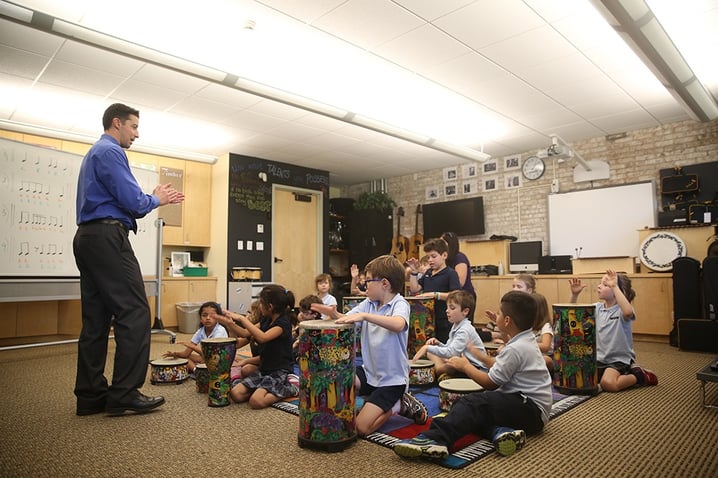Albert Einstein has often credited his study of the violin for inspiring him to think differently about physics. Former Federal Reserve Chairman Alan Greenspan credits his saxophone playing to balancing his mind when tackling complex economic patterns. During his playing career, it was often noted that New York Yankee all-star Bernie Williams was a better guitarist than he was a baseball player. He now enjoys a prolific music career post-baseball. So what is it about the act of playing a musical instrument that enables our minds to expand into deeper thinking?
The neurological effects of playing an instrument are unique in that it stimulates parts of our brain that are generally dormant. This enhanced synergy allows for the opening of new pathways and connections in our mind that grow stronger when exercised often like a muscle. In addition, these kinds of connections, when established and sustained can then be incorporated into other tasks and modes of thinking. So in short, playing a musical instrument makes you smarter!
Why is that? When we break down the multiple processes involved in playing an instrument, it's easy to see why this is the case.
There are six processes involved in playing a musical instrument:
1. Visual – Playing in an ensemble requires you to follow the conductor. Music is also a literate language and most of us are reading music as we are playing.
2. Aural – When playing in a group, a musician must be listening to themselves and listening to those around them.
3. Tactile – Playing an instrument requires hand and finger manipulation in addition to hand/eye coordination.

4. Physical – Playing music is a physical activity much like athletics. Success comes from building muscle memory over time through repetition. In addition to muscle memory, playing an instrument builds actual muscle as well. For instance, woodwind and brass generally require the development of the muscles of the face as well as dexterity of the fingers. I'm pretty sure the first thought people have when they meet me is "Wow! That Wil Reed has beautiful hands!" It's true. I do. But they aren't the product of genetics. They've been engineered over time—thousands of hours at the piano have led to stronger than average finger muscles, range of motion, and flexibility.
5. Translation – Music is a language. In particular, it's a symbolic language with notes, rests, dynamics, tempos, expressions, and articulations. A musician, playing an instrument must be able to process the visual symbols on the page and instantaneously translate them into knowledge they can interpret and then execute all at split-second speed.
6. Creativity – Music is an art form that requires artistic choices. No recording or live performance of a Beethoven symphony is ever the same. Even though the visual score never changes. The only way of accounting for this is the personal, and individual ways that each of us interprets music in our own creative way, even when playing with a group.
When broken down in this way, it's easy to understand the neurological components that go into action when playing music. While playing an instrument offers the direct opportunity to master a new skill, its benefits go far beyond the obvious and open our minds in unexpected ways.


